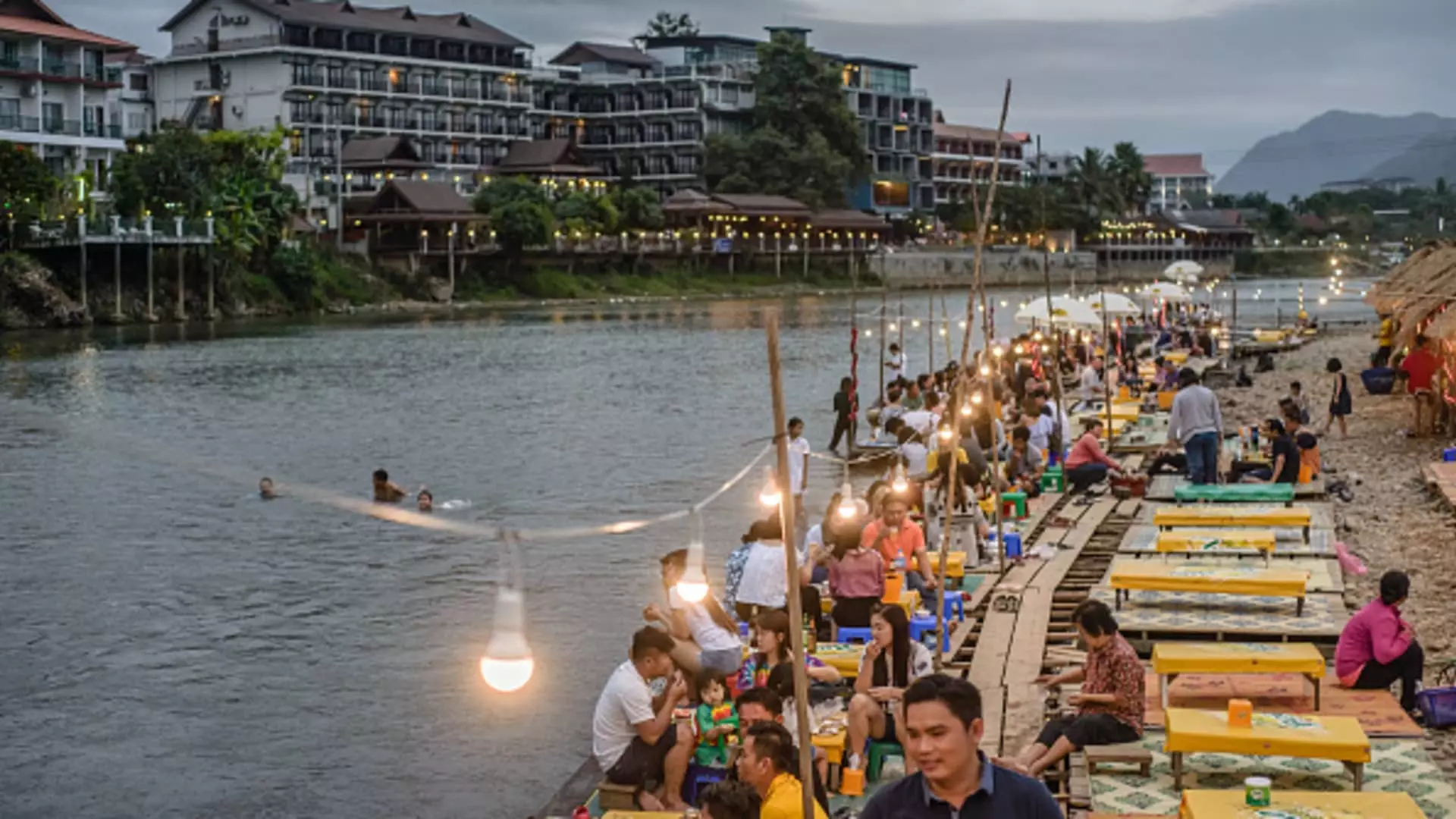In a heartbreaking incident earlier this month, six tourists lost their lives due to suspected methanol poisoning after enjoying what was meant to be a fun getaway in Vang Vieng, Laos. This tragic event highlights an alarming trend of methanol-related illnesses that are often underreported yet persistently dangerous, particularly in regions popular with international travelers. Among the deceased were two individuals from Australia, two from Denmark, one from the United Kingdom, and one from the United States. This diverse group underscores the global reach of this severe threat, revealing that no nationality is immune to the dangers of poorly regulated alcohol consumption. Reports suggest that the victims may have ingested alcohol contaminated with methanol, a toxic industrial-grade alcohol that is sometimes surreptitiously blended with consumer beverages to reduce production costs.
Methanol, unlike ethanol—the type of alcohol commonly found in beverages—is colorless and odorless, making it especially hazardous. Just 30 milliliters can result in death, while as little as 10 milliliters can lead to irreversible blindness. This sobering information bells alarms among healthcare professionals and organizations like Doctors Without Borders, which recently released a fact sheet detailing the widespread crisis. According to their data, methanol poisoning is a massive yet underappreciated public health issue; since 2019, it has been responsible for over 39,000 poisonings and around 12,900 fatalities worldwide.
This complexity is exacerbated by a general lack of awareness concerning methanol poisoning. Both travelers and locals often possess limited understanding of the dangers associated with drinking home-distilled spirits or alcohol acquired from unregulated sources. Methanol poisoning occurrences predominantly arise in Asian countries, with various high-profile incidents documented. Continuing to neglect education about safe drinking habits, particularly in places with informal alcohol sales, can have dire consequences.
Travelers venturing to popular destinations like Bali or Lombok should exercise extreme caution. A troubling trend has emerged in which foreigners consume illegally distilled “arak,” leading to unfortunate outcomes. Reports have surfaced of individuals poisoned after ordering alcoholic beverages via the internet and, tragically, students mixing tainted alcohol with energy drinks, illustrating that the dangers are pervasive and varied.
Colin Ahern, creator of a Facebook page titled “Just Don’t Drink Spirits in Bali,” urges tourists to stick to beer, cider, wine, and duty-free alcohol, highlighting the severe risks associated with cocktails and shots. His caution extends to the reality that if a drink is poured from a bottle of mixed spirits in an unlicensed establishment, the potential for methanol contamination exists.
Beyond Southeast Asia, the impact of methanol poisoning takes on a particularly grave note in regions like Iran, where mass incidents have claimed hundreds of lives. A staggering 5,800 individuals were poisoned in April 2020, shortly after the onset of the COVID-19 pandemic, largely due to a false belief that consuming methanol could kill the virus. This misapprehension reveals a broader issue: the intersection of misinformation and health crises.
Given the complexity of diagnosing methanol poisoning—where symptoms often mimic those of food poisoning or hangovers—many cases go unnoticed. Symptoms such as dizziness, rapid heartbeat, and impaired vision often appear harmless, adding to the urgency of awareness campaigns directed at both the public and healthcare providers alike.
Building Awareness and Safety
Doctors Without Borders continues to advocate for greater awareness surrounding the risks of methanol poisoning, emphasizing the importance of sticking to reputable drinking establishments and avoiding unlabelled or free alcohol. As travelers seek to explore the culinary and cultural offerings of tourist spots, they must remain vigilant against unseen threats that compromise their health and safety.
As incidents of methanol poisoning continue to emerge, it is evident that a concerted effort in education, regulation, and awareness is pivotal. Travelers must equip themselves with knowledge about safe drinking practices and take proactive steps to protect their well-being, ensuring that leisure time remains a source of joy rather than tragedy. Only then can we foster a safer travel environment where such preventable tragedies become stories of the past rather than repeating tragedies of the present.


Leave a Reply